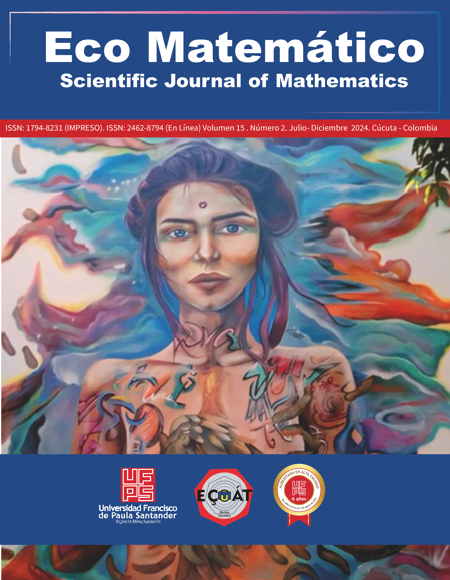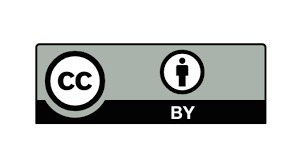Technological resources used by Pre-service Teachers for teaching mathematics in virtual environments: an analysis in a pedagogical practicum course
Recursos tecnológicos empleados por Maestros en Formación Inicial para la enseñanza de las matemáticas en entornos virtuales: un análisis en un curso de prácticas pedagógicas
Main Article Content
This qualitative descriptive study is based on the TPACK (Technological Pedagogical Content Knowledge) conceptual framework to characterize the technological resources used by pre-service teachers in teaching mathematics in virtual environments at a public university in Barranquilla, Colombia. Through virtual interviews and telephone calls validated by the Delphi method, detailed information was collected and transcribed about teaching practice, use of technological resources, knowledge, training, and perception of virtual education. The main findings revealed that participants employed specialized software, digital whiteboards, virtual platforms, and office software, integrating them with a didactic-pedagogical approach in their teaching. It was concluded that pre-service teachers took advantage of the e-learning modality to deepen their knowledge of new technological tools, strengthen those they already mastered, and implement them in primary and secondary basic education in the area of mathematics, thus enhancing their technological and pedagogical competencies to face the challenges of virtual education.
Downloads
Publication Facts
Reviewer profiles N/A
Author statements
Indexed in
- Academic society
- Universidad Francisco de Paula Santander
- Publisher
- Universidad Francisco de Paula Santander
Article Details
Acendra Pertuz, J. M., & Conde Carmona, R. J. (2024). STEAM para el desarrollo del pensamiento matemático: una revisión documental. Praxis, 20(2), 351–370. https://doi.org/10.21676/23897856.5783
Aldon, G., Cusi, A., Schacht, F., & Swidan, O. (2021). Teaching Mathematics in a Context of Lockdown: A Study Focused on Teachers’ Praxeologies. Educación Sciences, 11(38) 1-21. https://doi.org/10.3390/educsci11020038
Almantari, A., Maulina, S., & Bruce, S. (2020). Secondary School Mathematics Teachers’ Views on E-learning Implementation Barriers during the COVID-19 Pandemic: The Case of Indonesia. EURASIA Journal of Mathematics, Science and Technology Education, 16(7), 1-9. https://doi.org/10.29333/ejmste/8240.
Cabero, J., Marín, V., & Castaño, C. (2015). Validación de la aplicación del modelo TPACK para la formación del profesorado en TIC. Revista de Innovación Educativa, 14, 13-22. https://doi.org/10.7203/attic.14.4001
Campuzano, J, Pazmiño, M., & San Andrés-Laz, E. (2021). Dispositivos móviles y su influencia en el aprendizaje de la Matemática. Dominio de las Ciencias, 7(1), 648-662.
Canese, V., Mereles, J., & Amarilla, J. (2021). Educación remota y acceso tecnológico en Paraguay: perspectiva de padres y alumnos a través del Covid-19. Trilogía Ciencia Tecnología Sociedad, 13(24), 37-59. https://doi.org/10.22430/21457778.1746
Carpenter J., Trust T. & Green T. (2020). Transformative instruction or old wine in new skins? Exploring how and why educators use HyperDocs. Computers y Education, 157, 1-20. https://doi.org/10.1016/j.compedu.2020.103979
Cassibba, R., Ferrarello, D., Mammana, M., Musso, P., Pennisi, M., & Taranto, E. (2021). Teaching Mathematics at Distance: A Challenge for Universities. Education Sciences, 11(1), 1-20. https://dx.doi.org/10.3390/educsci1 1010001
Conde-Carmona, R., & Padilla-Escorcia, I. (2021). Aprender matemáticas en tiempos del COVID-19: Un estudio de caso con estudiantes universitarias. Educación y Humanismo, 23(40), 1-19. https://doi.org/10.17081/eduhum.23.40.4380
Conde-Carmona, R., Fontalvo-Meléndez, A., & Padilla-Escorcia, I. (2021). El uso de la tecnología en la enseñanza del límite, para el fortalecimiento de competencias matemáticas en estudiantes de secundaria en tiempos de pandemia. Revista Educación y Ciudad, 41, 1-19, https://doi.org/10.36737/01230425.n41.2496
Cruz, M. (2009). El método Delphi en las investigaciones educacionales. Editorial Academia.
Daniel, S. (2020) Education and the COVID‑19 pandemic. Prospects, 49, 91–96. https://doi.org/10.1007/s11125-020-09464-3
Espinosa-Izquierdo, J., Espinosa-Figueroa, J., & Espinosa-Arreaga, G. (2021). E-learning una herramienta necesaria para el aprendizaje. Polo del Conocimiento, 6(3), 659-669. https://doi.org/10.23857/pc.v6i3.2394
García-Plana, M., & Taberna-Torres, J. (2021). Transición de la docencia presencial a la no presencial en la UPC durante la pandemia del COVID-19. International Journal of Educational Research and Innovation, 15, 177-187. https://doi.org/10.46661/ijeri.5015
Hernández-Sampieri, R. (2014). Metodología de la Investigación. México: McGRAW HILL / INTERAMERICANA EDITORES, S.A. DE C.V; ISBN: 978-1-4562-2396 0.
Koehler, M. & Mishra, P. (2009). What is technological pedagogical content knowledge? Contemporary Issues in Technology and Teacher Education, 9(1), 60-70. https://doi.org/10.1177/002205741319300303
Koehler, M., Mishra, P., & Cain, W. (2015). ¿Qué son los Saberes Tecnológicos y Pedagógicos del Contenido (TPACK)? Virtualidad, Educación y Ciencia, 10(6), 9-23.
Marban, J., Radwan, E., Radwan, A., & Radwan, A. (2021). Primary and Secondary Students’ Usage of Digital Platforms for Mathematics Learning during the COVID-19 Outbreak: The Case of the Gaza Strip. Mathematics, 9(110), 1-21. https://doi.org/10.3390/math9020110
Moreno-Guerrero, A., Aznar-Díaz, I., Cáceres-Reche, P., & Alonso-García, S. (2020). Learning in the Teaching of Mathematics: An Educational Experience in Adult High School. Mathematics, 8(5), 1-16. https://doi.org/10.3390/math8050840
Padilla-Escorcia, I. & Conde-Carmona, R. (2020). Uso y formación en TIC en profesores de matemáticas. Revista Virtual Universidad Católica del Norte, 60, 116-136. https://www.doi.org/10.35575/rvucn.n60a7
Padilla-Escorcia, I., Conde-Carmona, R., & Tovar-Ortega, T. (2022). Recursos tecnológicos utilizados por profesores universitarios de carreras de ingeniería, en tiempos de virtualidad en Barranquilla (Colombia). Tecnura, 26(72), 147-166. https://doi.org/10.14483/22487638.18277
Salas, R. (2020). TPACK: Technological, Pedagogical and Content Model Necessary to Improve the Educational Process on Mathematics through a Web Application? International Electronic Journal of Mathematics Education, 15(1), 1-13. https://doi.org/10.29333/iejme/5887
Sánchez, C. (2020). Herramientas tecnológicas en la enseñanza de las matemáticas durante la pandemia COVID-19. Hamut´ay, 7 (2), 46-57. http://dx.doi.org/10.21503/hamu.v7i2.2132
Saubern, R., Urbach, D., Koehler M. & Phillips, M. (2020). Describing increasing proficiency in teachers’ knowledge of the effective use of digital technology. Computers y Education, 147, 1-13. https://doi.org/10.1016/j.compedu.2019.103784
Schmid, M., Brianza, E., & Petko, D. (2021). Self-reported technological pedagogical content knowledge (TPACK) of pre-service teachers in relation to digital technology use in lesson plans. Computers in Human Behavior, 115, 1-12. https://doi.org/10.1016/j.chb.2020.106586
Sintema, E. (2020). Effect of COVID-19 on the Performance of Grade 12 Students: Implications for STEM Education. EURASIA Journal of Mathematics, Science and Technology Education, 16(7), 1-6. https://doi.org/10.29333/ejmste/7893
Solano-Díaz, S., Conde-Carmona, R. J., & Padilla Escorcia, I. A. (2022). Caracterización del conocimiento tecnológico del contenido (TCK): un estudio de caso con profesores de matemáticas en formación inicial. Educación y Humanismo, 24(42), 144-162. https://doi.org/10.17081/eduhum.24.42.5142
Stake, R. (2010). Qualitative research. Studying how things work. The Gilford Press. New York - London
Thurm, D., & Barzel, B. (2020). Effects of a professional development program for teaching mathematics with technology on teachers’ beliefs, self‑efficacy and practices. Educational Studies in Mathematics, 52, 1411-1422. https://doi.org/10.1007/s11858-020-01158-6
Torrecillas, C. (2020). El reto de la docencia online para las universidades públicas españolas ante la pandemia del Covid-19. Universidad Complutense de Madrid. Madrid, España
UNESCO. (2017). E2030: Educación y Habilidades para el Siglo XXI. Santiago de Chile. UNESCO.
Viberg, O., Grönlund, A. & Andersson, A. (2020): Integra- ting digital technology in mathematics education: a Swedish case study. Interactive Learning Environments, 31(1), 232-243. https://doi.org/10.1080/10494820.2020.1770801
Zumbado, M. (2020). La experiencia de una conferencia virtual para formación profesional en Educación Matemática de primaria en Geometría. Revista Innovaciones Educativas, 22, 90-102. https://doi.org/10.22458/ie.v22iEspecial.3136








